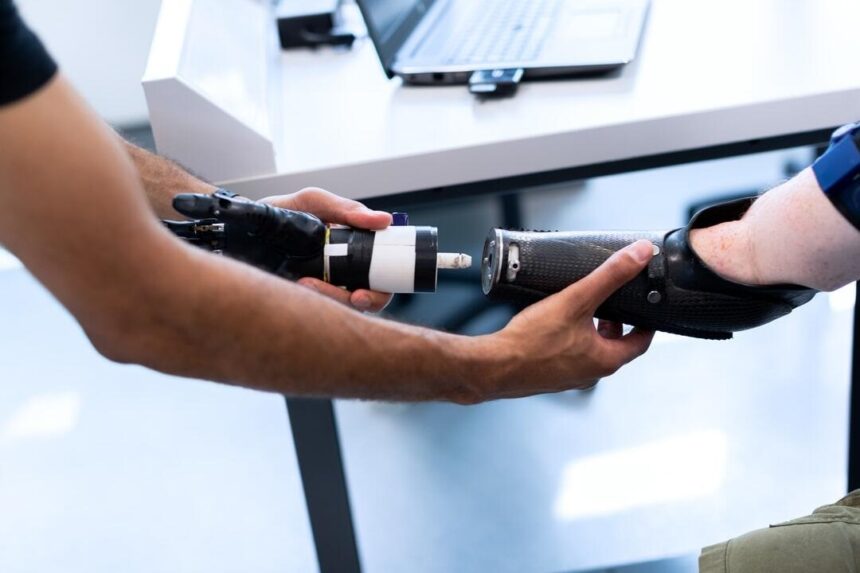An amputation injury can have life-altering consequences, both physically and emotionally. Whether resulting from a workplace accident, medical malpractice, or a motor vehicle collision, the loss of a limb often comes with long-term medical costs, loss of income, and emotional trauma. Fortunately, the legal system provides several avenues for amputation injury victims to pursue compensation.
- Understanding Amputation Injuries
- Common Causes of Amputation Injuries
- Workplace Accidents
- Motor Vehicle Accidents
- Medical Malpractice
- Defective Products
- Legal Theories for Compensation
- Negligence
- Workers’ Compensation
- Product Liability
- Medical Malpractice
- Types of Compensation Available
- Medical Expenses
- Lost Income
- Pain and Suffering
- Disability and Disfigurement
- Home Modifications and Assistive Devices
- Loss of Consortium
- Filing a Personal Injury Lawsuit
- Consult a Lawyer
- Gather Documentation
- Determine Liability
- Comply with Statutes of Limitations
- Workers’ Compensation Claims
- Get the Justice You Deserve
This article explores the various legal options available to amputation injury victims, the types of compensation they may be entitled to, and what steps they should take to protect their rights. Read on.
Understanding Amputation Injuries
Amputation refers to the loss or removal of a body part, usually a limb, such as an arm, leg, hand, or foot. These injuries may be:
Traumatic amputations occur suddenly due to accidents. Surgical amputations are performed due to medical conditions or irreparable damage. Regardless of the cause, amputations can lead to permanent disability, chronic pain, emotional distress, and significant lifestyle adjustments.
Common Causes of Amputation Injuries
Legal claims for amputation injuries usually arise when another party’s negligence or misconduct contributed to the injury. Common causes include:
Workplace Accidents
Jobs in construction, manufacturing, and agriculture often involve heavy machinery and dangerous equipment. If proper safety measures are not in place, workers may be at risk of traumatic amputations.
Motor Vehicle Accidents
Severe car, motorcycle, or truck accidents can result in crush injuries or require emergency surgical amputations. If the crash was caused by another driver’s negligence, the injured party may be entitled to compensation.
Medical Malpractice
Medical errors, such as failure to diagnose or treat an infection or vascular disease, may necessitate surgical amputation. In such cases, the patient might have a claim for medical malpractice.
Defective Products
Malfunctioning machinery, power tools, or consumer products can lead to serious injury. If the product was unreasonably dangerous, the manufacturer may be held liable under product liability laws.
Legal Theories for Compensation
Depending on the circumstances, amputation injury victims may pursue compensation under various legal theories:
Negligence
Most personal injury claims-including car accidents, slip and falls, and workplace injuries-involve proving negligence. This means showing that:
- The defendant owed a duty of care
- The duty was breached
- The breach caused the injury
- The injury led to damages
Workers’ Compensation
If the amputation occurred on the job, the injured worker is typically eligible for workers’ compensation benefits. These are usually no-fault claims, meaning the worker does not need to prove negligence. However, the trade-off is that workers’ comp generally does not cover pain and suffering.
Product Liability
Manufacturers, distributors, or retailers may be liable if a defective product caused the injury. In strict liability cases, it’s not necessary to prove negligence-only that the product was defective and caused harm.
Medical Malpractice
To establish a malpractice claim, the plaintiff must show that the healthcare provider failed to meet the standard of care and that this failure caused the injury.
Types of Compensation Available
The damages available in amputation injury claims can be extensive, given the lifelong impact of losing a limb. Compensation may include:
Medical Expenses
This includes both past and future medical costs such as surgery, prosthetics, rehabilitation, and physical therapy. These costs can add up quickly and often continue for many years after the injury.
Lost Income
Victims may recover compensation for wages lost during recovery, as well as diminished future earning capacity. Amputation may limit the types of jobs a person can do or prevent them from working at all.
Pain and Suffering
This accounts for physical pain, emotional trauma, and reduced quality of life. These damages recognize the non-financial toll the injury takes on daily life and mental health.
Disability and Disfigurement
The permanent nature of amputation injuries can result in additional compensation for long-term disability or visible disfigurement. This includes the emotional impact of living with a visible change to one’s body.
Home Modifications and Assistive Devices
Victims may be reimbursed for necessary adjustments to their living environment, such as wheelchair ramps, accessible bathrooms, or specialized vehicles. These changes are often essential for the person to live independently and safely.
Loss of Consortium
Spouses of injury victims may claim loss of companionship, intimacy, and support. This type of damage helps recognize the effect an injury can have on a couple’s relationship.
Filing a Personal Injury Lawsuit
To file a personal injury lawsuit for an amputation injury, victims should:
Consult a Lawyer
An amputation lawyer can evaluate the claim, gather evidence, and help navigate complex legal processes. Having legal support increases the chances of getting the full compensation you deserve.
Gather Documentation
Medical records, accident reports, photographs, and witness statements are critical for proving liability and damages. The more evidence you have, the stronger your case will be in court or during settlement talks.
Determine Liability
Identifying all responsible parties (e.g., employers, manufacturers, drivers) is essential for maximizing recovery. Sometimes, more than one person or company may be at fault, which can increase the total compensation available.
Comply with Statutes of Limitations
Personal injury claims must be filed within a certain timeframe, often 2-3 years, depending on the state and type of claim. Missing this deadline could mean losing your right to recover any compensation at all.
Workers’ Compensation Claims
If you lost a limb in a work-related accident, you may be able to get workers’ compensation. This is a type of insurance that helps cover your medical bills and part of your lost wages. To get these benefits, you should tell your employer about the injury as soon as possible and file a claim.
Workers’ compensation doesn’t require you to prove anyone was at fault. However, it also doesn’t cover everything, like pain and suffering.
In some cases, if someone else besides your employer caused the accident (like a machine manufacturer), you might be able to file a separate lawsuit to get more compensation. Getting help from a lawyer can make this process easier and help you get the full support you need.
Get the Justice You Deserve
Losing a limb is a life-changing event. It can affect every part of a person’s life-physically, emotionally, and financially. But if someone else’s actions caused the injury, you may have the right to get compensation.
If you or someone you love has suffered an amputation injury, it’s important to talk to a lawyer. They can explain your options and help you get the support you need to move forward.
If you want to read more articles, visit our blog.















